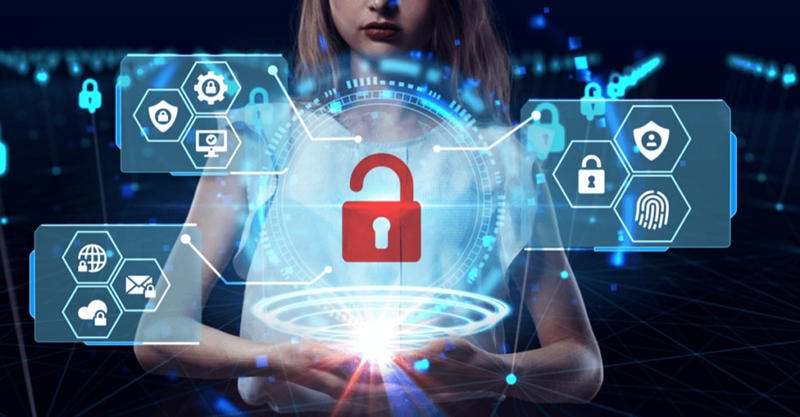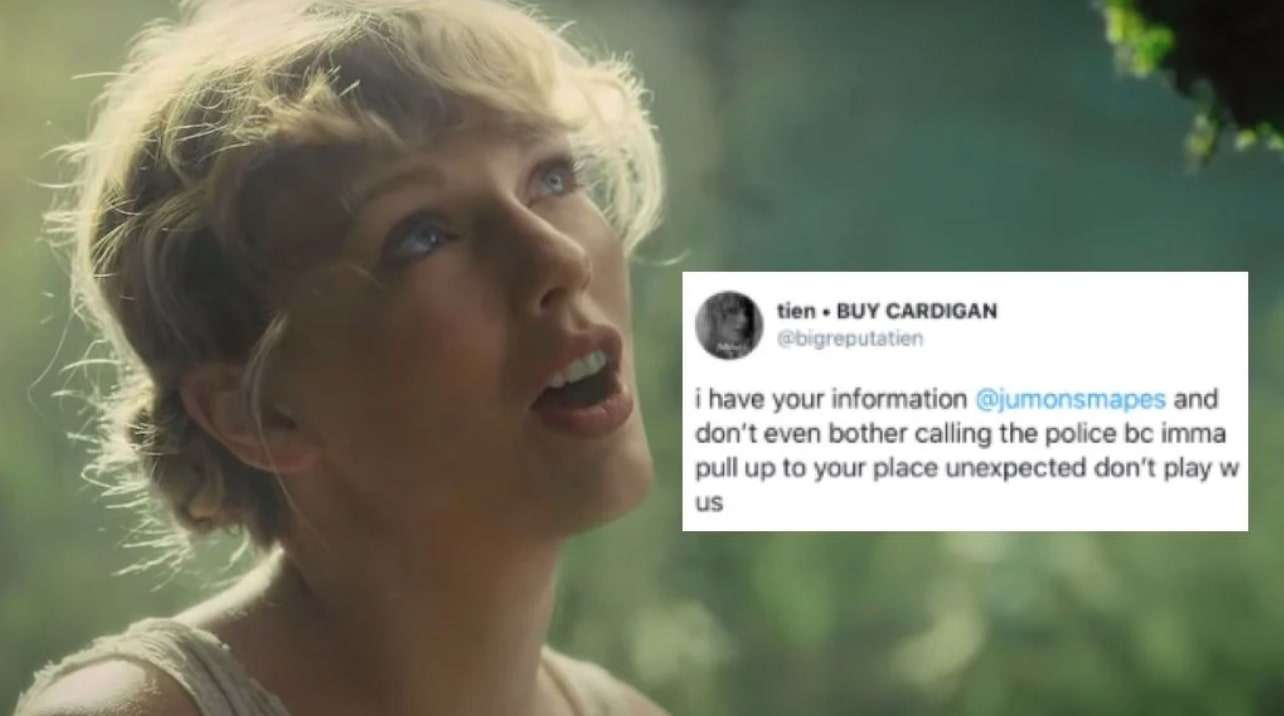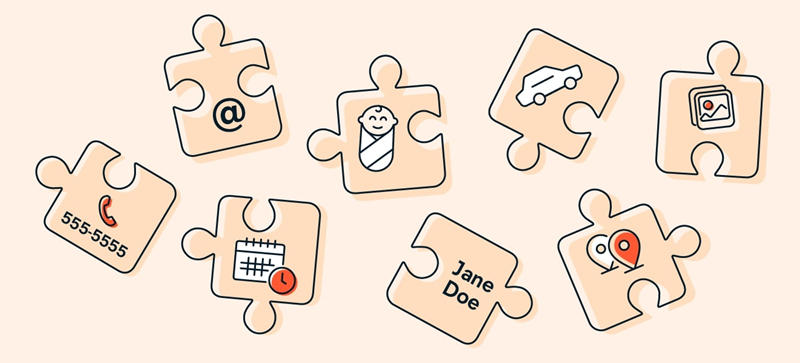What Does Doxxing Mean and How to Protect My Kids
ALL TOPICS
- YouTube Parental Control
-
- How to see your YouTube history?
- What is Metaverse? Parent Guide
- Put parental controls on YouTube
- Delete TikTok Account without Phone Number
- Ways to block YouTube channels
- Ways to Get Somone's IP Address and Hide IP Address
- A complete guide on YouTube parental control
- What is Fanfiction? Parents Guide
- Kids safe YouTube alternative
- Top 5 TikTok Alternatives
- Methods to restrict YouTube adult content
- Social Media App Parental Controls
- Parental Control Tips
Sep 11, 2024 Filed to: Learn Slangs Proven solutions

If you’ve just recently learned about doxxing or doxing, you should know it’s a real problem that can risk your children’s identity. Fortunately, there are steps you can take to put an end to doxxing and ensure your youngest family members are safe and secure online.
Doxxing is just one of the many cyber threats that lurk all internet users on the web. While a relatively new threat in the virtual space, doxxing has already taken root with countless internet users.
Unfortunately, doxxers primarily target younger populations, although there are no rules on who can become the victim. Since kids tend to spend long hours using the web these days, delve deeper into doxxing and how to protect them from it.
Table of Content
Part 1: What Is Doxxing?

Doxxing is a form of cyberbullying that attackers use to steal your private information. Attackers find a way around your cybersecurity measures to snatch private information you’ve posted online. Since your information is personally identifiable, it can help attackers find out who you are, where you live, and how to contact you.
Doxxers or attackers usually go after your personal information and details such as your photos, email address, phone number, home address, real name, etc.
There are several types of doxxing you should know about to protect your children more effectively:
- Social media doxxing – doxxers launch social media doxxing attacks to fetch your kids’ names, addresses, places they have been, their schools, and the names of friends and family members, leaving their social accounts exposed to all sorts of risks, such as online harassment.
- Swatting – hackers will find your child’s personal information online and use it to anonymously tip law enforcement, claiming your child is a wanted criminal, terrorist, or an imminent threat. Before you know it, you have SWAT teams swarming your place. Hence the term swatting.
- Pizza bombing – doxxers steal your credit card details and address and send hundreds of dollars worth of pizza to your location.
Part 2: What Does Doxxing Mean?

Doxxing means that the attacker has stolen your private and personal data and posted it online for third parties to see. In the worst-case scenario, doxxing could involve your kids’ private information.
Here are the three most commonly used terms to help you understand the meaning of doxxing:
- Dox – a slang word for documents or docs.
- Doxxer – a cybercriminal or hacker who performs the act of doxxing (the attacker).
- Doxxed – the victim of doxxing.
Using these terms, you can define doxxing as the act of sharing your personal documents with the world without your permission.
Here’s a list of information doxxers target the most:
- Real name
- Home address
- Phone number
- Email address
- Date of birth
- Medical information
- Pictures and videos
- Where you work
- School attended
- School attended
Part 3:How Doxxing Works

Doxxing is essentially someone releasing your kids’ personal information online. Doxxers or attackers use various techniques to obtain such data. Some of the most popular methods include searching social media accounts and public databases to snatch personal information, such as your child’s name, address, and all other identifying details.
Once they get such information, doxxers will find and harass the victim whose information has been revealed. In most cases, kids launch doxxing attacks to take revenge on other kids they don’t like or simply find interesting to bully.
On the other hand, hackers use doxxing to breach security measures and steal sensitive corporate data that they can monetize.
Part 4: Is Doxxing Illegal?

While doxxing itself isn’t illegal, doxxers often tend to break various laws relating to intimidation, stalking, and harassment. For example, harassing someone is illegal according to the Protection from Harassment Act.
Since doxxing mostly takes place on social media networks, various social media channels have rules against such forms of cyberbullying. If a doxxer obtains your child’s personal information illegally, you can contact the authorities and have them arrested and charged for doxxing.
Part 5: Ways You Can Protect Your Kids From Doxxing

Here are some ways you can protect your kids from doxxing attacks on the web:
- Improve social media privacy – your kids can avoid doxxing and all other forms of cyberbullying and online harassment by keeping their social media accounts private. In addition, they should turn off location tracking on social media apps.
- Teach them to avoid oversharing personal info online – the next step is to teach your children to keep the bare minimum of information on social media. Tell them to avoid revealing or sharing personal information online, especially their address, school, etc.
- Educate them on cybersecurity – in the internet-driven world, the sooner you talk to your kids about the importance of cybersecurity, the better.
- Monitor their online activity – use search engines and search tools to check what information you can find about your kids on the web. If you come across sensitive information that shouldn’t be there, take steps to remove it.
You can also use a parental control tool to track what your kids are doing online, monitor the content they interact with, limit the time they spend online, etc. Read on to find out more about the many things that a top-grade parental app can do.
Part 6: Tracking Your Kids Online Is Important

Tracking your kids’ online activity allows you to safeguard your loved ones online. However, you can’t be present online 24/7. That’s why you should use one of the most reliable parental control apps, such as Wondershare FamiSafe.
This all-in-one app comes swarming with top parental control tools that empower you to track your child’s location in real-time, check the content they see on their devices, control screen time, limit phone usage, and much more.
With FamiSafe, you can monitor your children’s phone activity, check content safety, remove inappropriate websites, track their location, and even offer help with school projects through a special FamiSafe version for students. Best of all, you can test FamiSafe for free to see how it fits your parenting needs.
- Web Filter & SafeSearch
- Screen Time Limit & Schedule
- Location Tracking & Driving Report
- App Blocker & App Activity Tracker
- YouTube History Monitor & Video Blocker
- Social Media Texts & Porn Images Alerts
- Works on Mac, Windows, Android, iOS, Kindle Fire, Chromebook
Conclusion
Doxxing, cyberbullying, online harassment, and intimidation are real threats that require your immediate attention. If left untreated, they could reflect negatively on your children’s well-being. Therefore, you should help your kids learn about the best ways to protect themselves online and develop valuable coping skills for managing negative emotions, anger, anxiety, and stress.
In most situations, you can avoid dealing with negative scenarios using a parental control app to safeguard your kids online and ensure they never come across inappropriate content and abusive behavior. However, you can’t protect them 24/7. That’s why your kids should learn to protect themselves.


Moly Swift
staff Editor